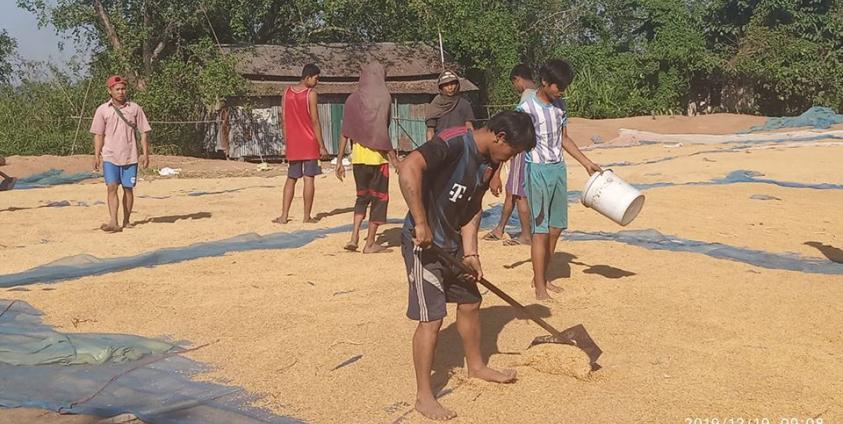Traders in the Ayeyarwady Region have expressed difficulties faced by rice traders and mill owners due to the rice storage registration system implemented by the Junta.
Traders highlighted the obstacles they face with the Military Council's rice storage registration system, stating that it is difficult to consistently report the precise quantity of rice and paddy for storage. This is due to the dynamic nature of the market, where the amount of rice and paddy to be stored can fluctuate in real-time, based on supply and demand. Delays in business operations may also occur due to the time lag between the submission and registration of the quantity of rice and paddy to be stored.
A trader from Pathein Township said, "The essence of trade is that once the stored product is in hand, if a buyer comes across it and buys it, it can no longer be kept in storage. Sellers also tend to accumulate more goods due to favorable prices. However this results in the requirement for registration, causing delays. The current system imposed by the Military Council restricts freedom of trade."
On May 9, the Ministry of Commerce under the Military Council made an announcement regarding the establishment of a public-private working group. This group is responsible for the registration of rice storage companies, specifically targeting rice traders and millers who store quantities exceeding 1,000 bags of rice (equivalent to 50 tons) or 5,000 baskets of paddy. The purpose of this group is to ensure compliance and conduct inspections, to verify if the businesses are duly registered.
The ministry ‘s statement mentioned that, failure to register for the specified storage limit would result in legal action. It also outlined the plan to implement an online registration system that utilizes ICT and digital technology, to streamline the registration process.
According to a mill manager in Myaungmya township, the duration required for rice milling can vary depending on individual millers. As a result, it becomes difficult to establish a fixed quantity for rice storage, since it involves a combination of rice owned by the mill, rice deposited by traders, and rice deposited by other millers. The varying factors involved in the milling process contribute to the complexity of determining a specific amount for storage.
"The Military Council holds the belief that mill owners and rice traders are stockpiling rice and selling it at higher prices. However the underlying issue stems from an imbalance between supply and demand. The agriculture department under the Military Council has been unsuccessful in incentivizing farmers to cultivate more rice, resulting in low yields and consequently driving up the prices of paddy and rice," said a mill owner.
According to the records of the Township Department of Agriculture, in the Ayeyarwady Region, there are approximately 3.8 million acres of monsoon paddy cultivation. The cultivated acres of summer paddy, which usually amount to about half of the monsoon paddy cultivated acres, have been reduced to only around one-third this year. This decline is attributed to the increased cost of cultivation.







